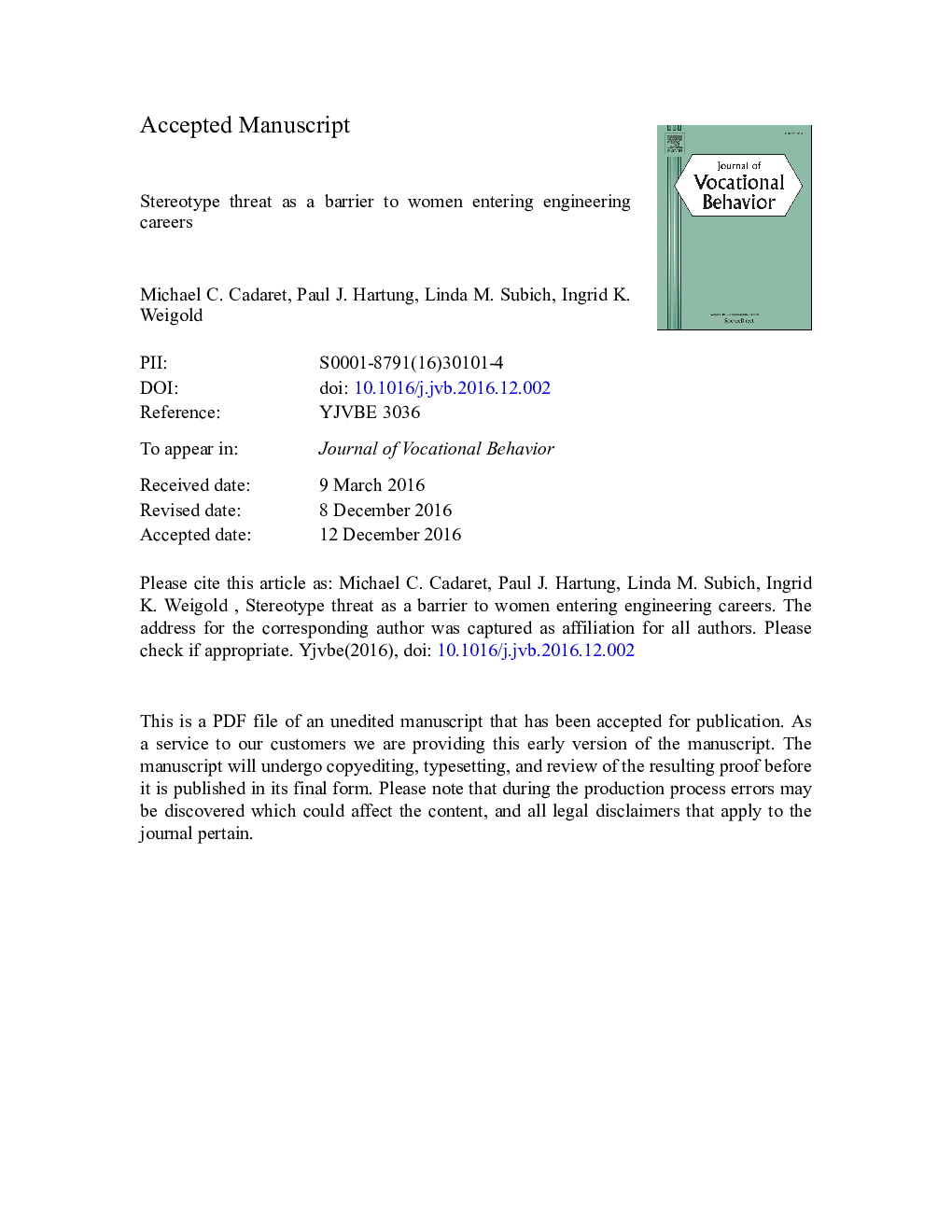| Article ID | Journal | Published Year | Pages | File Type |
|---|---|---|---|---|
| 5035151 | Journal of Vocational Behavior | 2017 | 43 Pages |
Abstract
Theory suggests that proximal contextual variables contribute to women's underrepresentation in STEM fields. We therefore examined relationships between stereotype threat as a proximal contextual variable and academic self-efficacy. We also examined the influence of self-efficacy for coping with educational barriers on those relationships. A total of 211 women undergraduate students majoring in engineering fields (73% White, mean age = 21 years) responded to measures of stigma consciousness and stereotype vulnerability as proxies for stereotype threat, along with measures of self-efficacy for coping with barriers (CWB) and academic self-efficacy. Stigma consciousness (in the form of awareness of sexism and negative attitudes about women), but not stereotype vulnerability, negatively related to women's confidence in their abilities to complete a college degree in a engineering major field. Results of a moderation model indicated a significant interaction of CWB and stigma consciousness on academic self-efficacy, with no such interaction effect for stereotype vulnerability. Our findings add to the proximal contextual barriers framework within Social Cognitive Career Theory by uncovering the existence of negative relationships between consciousness of discrimination due to group identity and academic self-efficacy. Promoting positive identity and constructive interaction with the environment may support women's career development in engineering fields.
Related Topics
Social Sciences and Humanities
Business, Management and Accounting
Marketing
Authors
Michael C. Cadaret, Paul J. Hartung, Linda M. Subich, Ingrid K. Weigold,
